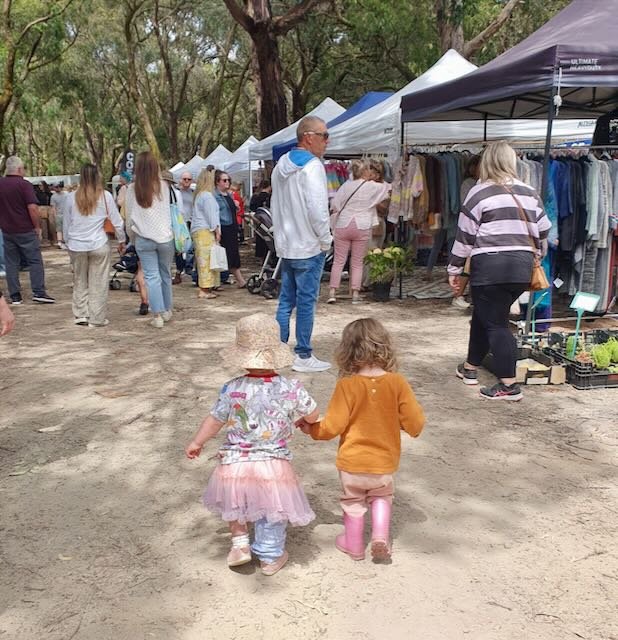Five tips for being a Stellar Friend to your Disabled Someone
The fundamental elements of friendship should be universal, timeless and unchanging. As with most relationships, there is a common-interest base, and a transactional factor involving reciprocal expectations; moral support is exchanged for an emotional dump or picking up your friends’ kids to receive the joy of simply helping out.
But good, honest friendship should never involve a power imbalance, where one side isn’t feeling joy from the relationship. This might happen in a relationship in which each experiences life quite differently, such as through the lens of disability.
In both pre and post-disability days, I have been surrounded by many wonderful people.
So as a personal reflection, below are my five tips for being a stellar friend to your disabled someone.
1. Be pragmatic: In my case, this is being my arms and legs; baking a cake, turning me in bed, feeding the pets, potting a plant or captaining my modified car, just a few of the many activities I rely on others for. Although this is an arguably ableist emotion, I can’t express just how grateful I am to every friend and family member who has and continues to, assist me compassionately and practically. Unwelcome tears of pity evaporate while acts of pragmatism endure.
2. Be empathetic: Most of us possess feelings of compassion towards other people – especially those we know personally. However, it is impossible to truly feel what another’s challenges are, and how their mind reacts to their situation, and empathy can be hard to learn and practice. An empathetic friend tries to understand; listens without interruption, tames any judgement, and responds honestly when requests for help or advice are offered. An empathetic friend expands their own normative view of life to do things a little differently and accommodate their friend as best they can. For instance, Gaz ( my guy) and many friends and family understand that I hate continuously asking for every little thing. Many now pre-empt my needs whether it be a drink bottle placed on my chair or an offer to put my pup on my lap.
3. Be aware: The worst and best thing you can say to your friend with a disability is ‘I don’t see your disability.’ You most likely mean that you still love/respect/admire them for the reasons you’ve always done, but you absolutely must recognise us as disabled people. If you don’t see that my needs are not the norm, how are we to ever access venues, accommodation, trips and visits? We might not do stairs or have easy access to transport or appropriate parking, and we might have limited energy to do what used to be everyday activities. Until our society becomes less ableist in attitudes and structures it is imperative that you recognise that our interactions will need to be altered and involve careful planning and understanding.
4. Be an advocate: The concept of advocacy doesn’t have to be mobs of placard-waving people chanting and yelling in the quest for equity and inclusion. Advocating is as simple as asking what your disabled friend requires when booking a restaurant and finding the right one. You might feel comfortable suggesting small inclusive tips to venues even when you’re not with your disabled someone. Help normalise disability by following and sharing some of the many brilliant, funny, informative, disabled people on social media. Check out who I follow here. Or even simply incorporating books and movies that include disability as part of your life. It feels so good when I see non-disabled friends and acquaintances get that light bulb moment when I explain things like why the table height makes the difference between me being fed or being independent. This is a little-understood dining-out deal-breaker for many wheelchair users. All my friends happily help organise restaurant or home table positioning for me, many also help me feed myself, or literally feed me.
5. Be yourself: If you already had a great friendship based on mutual interests and values your relationship shouldn’t alter significantly. Don’t change your essential self because your friend may not be able to share your interests as before, or you feel a sense of guilt, grief, or anger around their circumstances. I assure you that there is enough loss and anguish involved in adjusting to a disability, so, for many of us, we take energy and comfort in maintaining a link to most aspects of our former lives. And, often, we become resourceful and find there are ways to continue participation as we adjust to our new life.
True friendship, like a well-lived and loved romantic relationship is made up of so many ingredients borne from each other's personalities, choices made by you and circumstances changed outside of your control. Friendship can be a mix of joy, sorrow, misunderstandings, hurt, comradery, secrets, trust, loyalty, laughter and mending. Sometimes fate can be too light or heavy-handed on an ingredient but that can’t alter a truly good friendship, it will remain just that.
So, to be a stellar friend to your disabled someone, remember these 5 things:
1. Be pragmatic
2. Be empathetic
3. Be aware
4. Be an advocate
5. Be yourself
Within any friendship, there are responsibilities and commitments on both parties, and I will follow up with 5 Tips on Being a Stellar Disabled Friend next. Of course, these tips apply to many friendships, not just where permanent disability features. Because if you’re lucky enough to have even one good friend, together you will have navigated highs and lows, and will understand all too well the importance of being a good friend.
If you love this blog and want to hear from me more, make sure you subscribe to my newsletter below!
Yours in friendship,



